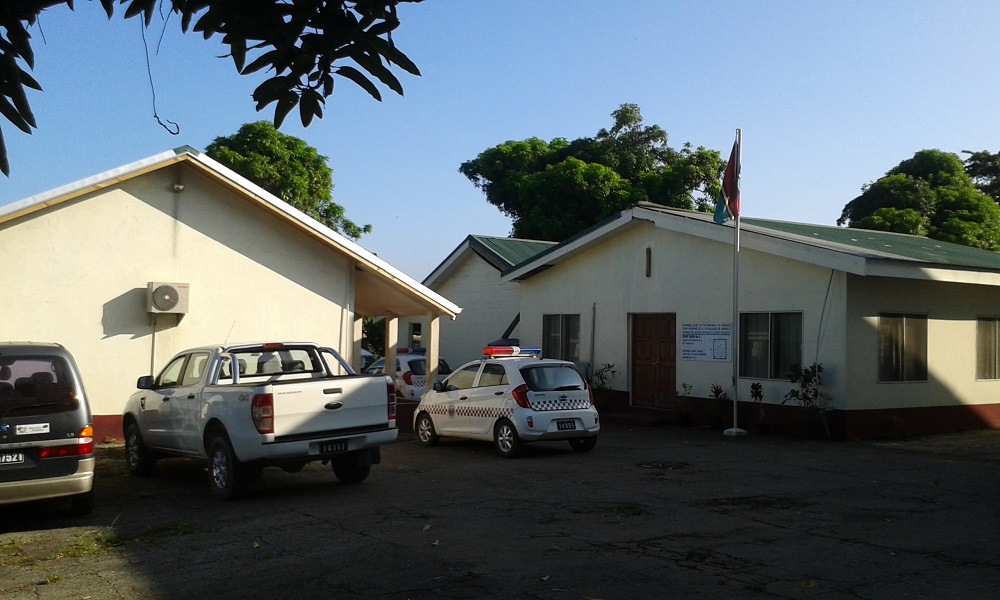The Supreme Court of Vanuatu ruled on Friday that Vanuatu’s opposition party won a no-confidence vote regarding incumbent Prime Minister Ishmael Kalsakau last week.
While the speaker of Parliament initially ruled that the motion failed, because it garnered less than the absolute majority of 27 votes, Judge Edwin Goldsbrough of the Supreme Court found that 27 votes should not constitute an absolute majority because one Parliament seat was vacant when they held the motion.
In considering whether the absolute majority of 27 had to be met as held in Kilman v Speaker of Parliament of the Republic of Vanuatu, Goldsbrough wrote: “This Court concludes that the actual number of members of Parliament when this vote was taken is the relevant number on which an absolute majority should be based. That absolute majority, with fifty-one members, is twenty-six. The correct decision following the vote was that the motion was carried.”
In other words, Goldsbrough held that the no-confidence motion for Kalsakau won since 26 votes—which was the absolute majority required—were cast in favor of the motion.
Goldsbrough also stayed an action to remove Kalsakau until 3:00 PM local time on Monday, which gives time to appeal the issue. If no appeal is made or the appeal is rejected, Vanuatu’s Parliament will elect a new prime minister.
Vanuatu’s opposition leader Bob Loughman, who was prime minister of Vanuatu before Kalsakau, lodged the no-confidence petition against Kalsakau for signing a security pact with Australia.
Loughman criticised the security pact, stating that it compromises the neutral status of Vanuatu and potentially jeopardiSes assistance from China.
Nevertheless, Kalsakau espoused that Loughman’s position was baseless and disagreed with him in saying that more international leaders, such as French President Emmanuel Macron, had visited Vanuatu during his premiership as compared to Loughman’s.
Former prime minister and Opposition MP Sato Kilman, said the judge had ruled an absolute majority in parliament was 26, so the opposition won the case.
“We are glad, because we believed that we were right from the start, and that is why we lodged the application to the court,” Kilman told RNZ Pacific.
Earlier this month the opposition, in seeking to remove Prime Minister Ishmael Kalsakau, won 26 votes in the 52-member House, while the government got 23 votes.
There was one abstention, from the speaker; one seat is vacant and one is empty due to that MP getting medical treatment overseas.
Vanuatu’s constitution states that an absolute majority is needed to oust a prime minister and this has been interpreted to mean 27 MPs in the 52-member parliament.
Kalsakau said there was legal precedent to support this position.
In the judgment released on Friday, the judge said the court “concludes that the actual number of members of Parliament when this vote was taken is the relevant number on which an absolute majority should be based”.
“It is the view of this court that the applicants have shown that their Constitutional rights, as set out in the application filed on 17 August 2023, have been infringed by the 1st respondent,” the judgment said.
“They are entitled to relief sought.”
It also said an order would be issued about that relief, but the order would include a stay to allow an appeal before any further steps are taken to enforce the order.
Cathy Solomon, 64, who lives in Port Vila, said the majority of people in Vanuatu were suffering because of “unfair and sad” politicians who were only thinking of self preservation.
She said the country’s politicians had failed in their purpose as elected representatives of the people.
She said it was time for more women to get into parliament so they could challenge and change Vanuatu’s precarious politic situation.
Hendon Kalsakau, 65, a chief of the Coconut Tribe on Ifira island, said the situation was “affecting deeply” the Ni-Vanuatu people.
SOURCE: JURIST/RNZ PACIFIC/PACNEWS













